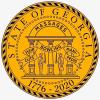Pub Notes
Proud To Be Middle-Class?
Are you middle-class? Am I? What makes us middle-class? Is it our income? How much or little does it take to qualify as middle-class? What’s the difference between middle-class and poor? Between middle-class and rich? Is it all about money, or are their other values that define our status?
The reason I ask these questions is because President Obama ran his re-election campaign on behalf of the middle-class, and he fought to keep taxes from rising on the middle-class during the “fiscal cliff” maneuverings. It is strange to stake an election and a reputation in defense of a group that nobody can define or point to or wants to belong to. Considering what I’ve been drawing from Flagpole recently, I am in the lower class economically, but even so, I do not aspire to be in the middle class, and I think a lot of people feel that way. That’s why it puzzles me that political operatives as smart as the President and his people put so much emphasis on the middle-class.
I came of age at a time when “middle-class” was a pejorative term, especially if you were middle-class, or at least if your parents were. It had come to mean “bourgeoise,” “middle-brow,” safe-thinking, uncreative worshippers of the status-quo. Nobody my age at that time wanted to be middle-class, and I suspect a lot of my contemporaries still sort of cringe at being thought middle-class. If we don’t aspire to be upper-class or rich, we at least prefer not to be defined by class-consciousness at all.
Take an artist. An artist may be poor before those $5,000 paintings start selling, but her income doesn’t make an artist lower class. And even after she has some money, she still is not middle-class. She is an artist—even if she’s rich. Same with a writer and an automobile racer. Are those guys on the NASCAR tracks middle-class? I don’t think so. Neither are they lower class before they make it, nor are they upper-class when they start winning. Same with football players. A middle-class middle linebacker is an oxymoron. Knocking heads is just not a middle-class pursuit.
I’m serious: do you know anybody who proudly asserts, “I am middle-class?” Everybody would be happy to announce, “I am secure. I have enough. I don’t have to worry about not being able to pay my bills.” I just don’t know anybody who is proud to call himself middle-class.
At his press conference just before the Senate voted on the fiscal-cliff-avoidance package, the President divided the country into the wealthy two percent and the other 98 percent, which he called the middle class. I guess he just got carried away, but it made me wonder if even the President knows who comprises the middle-class that he has put himself on the line for.
Maybe I’m wrong. Maybe people are proud to be called middle-class or to think they might qualify for this label, but I can’t help feeling that the President won in spite of championing this vague, amorphous group. I think he was right when he said he was fighting for the 98 percent not in the top two percent. It’s just that a lot of those people by definition can’t be in the middle class, and a lot of them, like me, don’t want to be in it. What’s wrong with just saying “the American people?” That’s who we are, including the top two percent. That’s the whole point: the top two, as American citizens, should pay their fair share, just as the rest of us should—rich, poor and in-between. And speaking of the poor, that vast population is ignored in the continuing, exclusive emphasis on helping the middle-class.
But there’s no need for us 98 percent of American citizens to feel smug about a tax increase on our better-off brethren. A 5 percent tax hike on $450,000 is $22,500. You wouldn’t want to have to write out a check that big, even if your income was large enough to require it. And don’t forget; you just got a permanent tax break that will keep you from having to write out a check for $2,000 every year. It’s hardly fair, but then the idea that life is fair is so hopelessly middle-class.
For a more scholarly examination of what "middle-class" means, see James C. Cobb's "Cobbloviate" elsewhere on this site.
Tim Johnson Responds
Hi, Pete. In your column, you say that a 5 percent tax hike on $450,000 is $22,500. But there was no income tax hike on $450,000, only on income over $450,000. The increase in income tax rates only applies to the part of the income above $450,000, not to the income up to that. So, if you make $450,001, the 5% (rounded off) tax hike would be 5 cents, not $22,500,05. If you make $500,000, a 5% tax hike would be $2,500 (5% x $50,000), not $25,000.
For that matter, it wasn't really a tax hike, but rather expiration of the "temporary" tax reduction that was put into place under Bush. And those folks over $450,000, along with the rest of us, would have paid much more on their incomes up to $450,000, if Congress & the president hadn't established new, lower tax rates on income up to $450K rather than those that had been approved upon expiration of the "temporary" one.
Tim Johnson
Athens
More by Pete McCommons
-
Voting Absentee: Necessary But Not Easy
Pub Notes
-

Be Ready When National TV Comes Calling
Pub Notes
-










comments